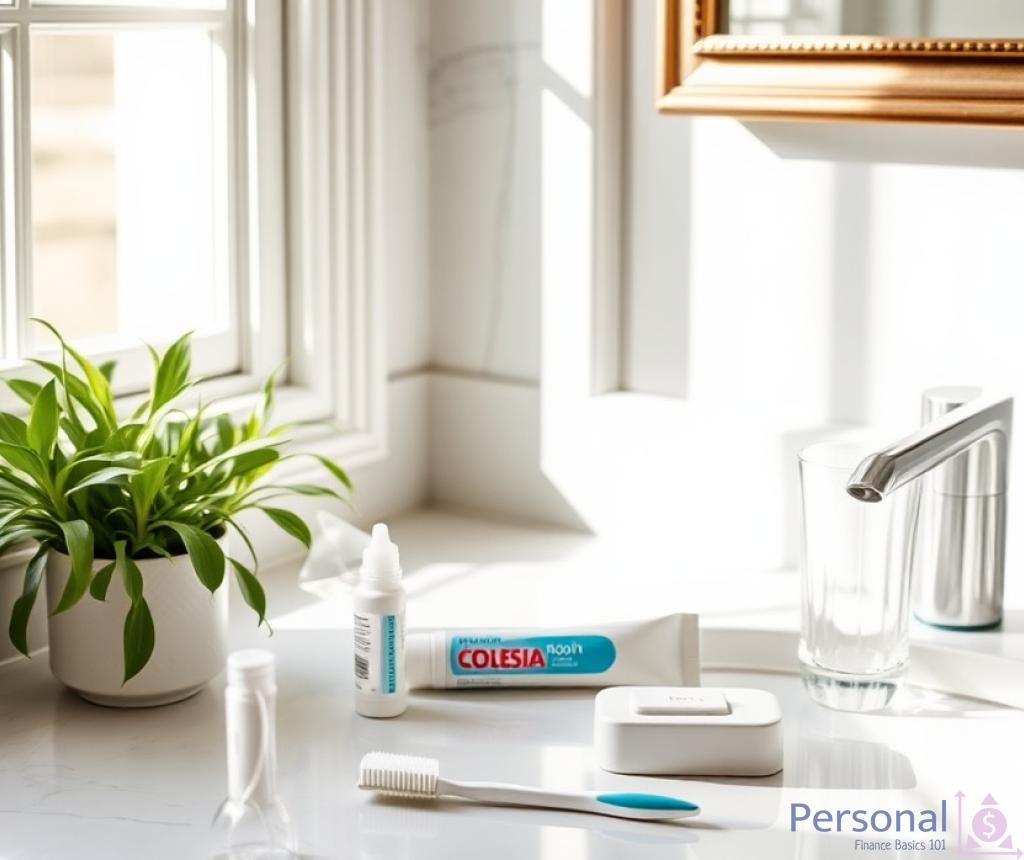Daily Oral Hygiene Practices

The Importance of Consistent Oral Hygiene
Maintaining optimal oral hygiene is not merely a recommendation; it is a necessity for preventing costly dental procedures. Regular and effective oral care can significantly reduce the risk of cavities, gum disease, and other dental issues that may lead to expensive treatments. By investing time and effort into daily oral hygiene practices, individuals can save both their smiles and their wallets.
Essential Daily Practices for Healthy Teeth and Gums
Implementing a consistent oral hygiene routine is vital for sustaining dental health. Below are some essential practices that should be integrated into your daily routine:
- Brushing Twice a Day: Use fluoride toothpaste to brush your teeth at least twice daily for two minutes. This helps remove plaque and prevent decay.
- Flossing Daily: Flossing removes food particles and plaque from between the teeth and under the gumline, areas where a toothbrush cannot reach.
- Using Mouthwash: An antibacterial mouthwash can help to reduce plaque, prevent gingivitis, and freshen breath.
- Regular Tongue Cleaning: Cleaning your tongue can remove bacteria and help improve your breath.
- Staying Hydrated: Drinking water promotes saliva production, which helps neutralize acids in the mouth and wash away food particles.
Understanding the Impact of Diet on Oral Health
Your dietary choices play a critical role in maintaining oral health. A balanced diet rich in vitamins and minerals can fortify your teeth and gums, while certain foods can contribute to tooth decay and gum disease. Below is a comparison of foods that benefit oral health versus those that can lead to dental issues:
| Beneficial Foods | Harmful Foods |
|---|---|
| Fruits and Vegetables (e.g., apples, carrots) | Sugary Snacks (e.g., candies, chocolates) |
| Dairy Products (e.g., yogurt, cheese) | Soft Drinks and Sodas |
| Nuts and Seeds | White Bread and Pastries |
By being mindful of your diet and incorporating these daily oral hygiene practices, you can significantly reduce the likelihood of needing costly dental procedures in the future. Remember, prevention is always more cost-effective than treatment.
Importance of Regular Dental Check-ups

Regular dental check-ups are often overlooked in the hustle and bustle of daily life, yet they are a cornerstone of effective dental care. Many individuals may perceive these appointments as an unnecessary expense, but the reality is that they serve as a critical investment in long-term oral health. By prioritizing routine visits to the dentist, you can catch potential problems early, which can save you both time and money in the long run.
Proactive Approach to Oral Health
Dental check-ups provide an opportunity for professionals to assess your oral health comprehensively. During these visits, dentists perform thorough examinations that can identify issues before they escalate into serious problems requiring costly treatments. This proactive approach not only helps maintain your dental health but also contributes to your overall well-being.
Preventive Treatments Offered During Check-ups
During a routine dental visit, various preventive measures can be administered. Here are some key treatments that can help you avoid future expenses:
- Professional Cleanings: Regular cleanings remove tartar and plaque that brushing and flossing alone may miss.
- Fluoride Treatments: Strengthening tooth enamel with fluoride can significantly reduce the risk of cavities.
- Sealants: Dental sealants can protect the chewing surfaces of your back teeth, making them less prone to decay.
- Oral Cancer Screenings: Early detection of potential issues can lead to more effective treatment options.
By understanding the importance of these preventive treatments, you can appreciate how regular check-ups can save you from the financial burden of extensive dental work in the future.
Building a Lifelong Dental Care Routine
Establishing a routine that includes regular dental appointments fosters a sense of accountability for your oral health. Combining these visits with the previously discussed daily oral hygiene practices creates a robust framework for preventing dental issues. This holistic approach ensures that both preventative measures and self-care habits work in tandem, promoting a healthier smile without overwhelming your budget.
Nutritional Choices for Dental Health
Making informed nutritional choices can significantly influence your dental health, ultimately saving you from costly dental procedures. The food you consume not only nourishes your body but also directly impacts the condition of your teeth and gums. A well-rounded diet can enhance your oral health, providing essential nutrients that strengthen your teeth and reduce the risk of decay and gum disease.
Empowering Your Smile Through Smart Food Choices
Integrating a variety of nutrient-dense foods into your daily diet can fortify your oral health. Certain vitamins and minerals play a pivotal role in maintaining strong teeth and a healthy mouth. Here are some key nutrients to focus on:
- Calcium: Essential for strengthening tooth enamel. Found in dairy products, leafy greens, and fortified foods.
- Vitamin D: Enhances calcium absorption, supporting overall dental health. Sources include sunlight exposure, fatty fish, and fortified foods.
- Phosphorus: Works in tandem with calcium to build and maintain strong teeth. Present in meat, fish, eggs, and nuts.
- Vitamin C: Vital for gum health and healing. Rich sources include citrus fruits, strawberries, and bell peppers.
Foods to Embrace and Avoid
While it’s essential to incorporate beneficial foods into your diet, it’s equally important to identify those that may contribute to dental issues. Below is a comparison of foods that can bolster your dental health against those that might pose a risk:
- Wholesome Choices: Fresh fruits and vegetables, whole grains, lean proteins, and low-fat dairy products.
- Foods to Limit: Sugary treats, processed snacks, acidic beverages, and starchy foods that can linger on teeth.
By consciously selecting foods that promote oral health and minimizing those that can lead to decay, you can play a crucial role in preventing dental problems. This mindful approach to nutrition not only supports your smile but also aligns perfectly with the frugal dental care philosophy of prevention over treatment.
Cost-effective Dental Care Products
In a world where dental expenses can quickly spiral out of control, *choosing the right dental care products can be a game changer*. Investing in cost-effective dental care solutions not only enhances your oral health but also aligns perfectly with the philosophy of preventative care. By focusing on affordable yet effective products, you can maintain your smile without putting a significant dent in your budget.
Smart Choices in Toothpaste and Brushes are paramount in your daily hygiene routine. Opting for toothpaste that contains fluoride is essential for strengthening enamel and preventing cavities. Many budget-friendly brands offer fluoride toothpaste that competes effectively with premium products. Additionally, when it comes to toothbrushes, consider investing in a quality manual or electric toothbrush that fits comfortably in your hand. Regular replacement, approximately every three months, ensures that your toothbrush remains effective in plaque removal, making it an essential part of your dental arsenal.
Moreover, *flossing is a crucial component of oral care that is often overlooked*. Floss is relatively inexpensive and comes in various forms, including waxed, unwaxed, and flavored options. Choosing a floss that suits your preference can encourage daily use, significantly reducing the risk of gum disease and cavities. Furthermore, integrating an antibacterial mouthwash into your routine can reinforce your efforts by targeting bacteria that brushing and flossing may miss. Many economical mouthwash options provide effective plaque control and breath freshening without the high price tag.
Maximizing Your Investment in Dental Products requires a strategic approach. When purchasing dental care items, keeping an eye out for bulk purchasing options or sales can lead to substantial savings. Many retailers offer discounts for multiple purchases or loyalty programs that reward frequent shoppers. By being proactive in your shopping habits, you can stock up on essential items without breaking the bank. Additionally, consider utilizing online resources that provide reviews and comparisons of dental products to ensure that you are making informed choices that provide the best value for your money.
Ultimately, *the right dental care products can serve as the first line of defense against costly dental procedures*. By prioritizing quality, affordability, and strategic purchasing, you can cultivate a robust oral hygiene routine that not only preserves your smile but also your finances. Remember, investing in preventative care today is a cost-effective way to secure a healthier tomorrow.
Understanding Dental Insurance Benefits
Navigating the complexities of dental insurance can often feel overwhelming, yet understanding your benefits is crucial for maximizing your savings and ensuring you receive the dental care you need. Dental insurance is designed not only to help offset costs but also to encourage regular check-ups and preventative measures that can stave off more extensive, costly procedures down the line. By familiarizing yourself with your insurance plan, you can make informed choices that align with the frugal dental care philosophy.
Decoding Your Dental Plan
Every dental insurance plan has its unique features, and understanding these can significantly enhance your ability to manage costs. Key components to consider include:
- Coverage Types: Most plans cover preventative care, such as cleanings and check-ups, at 100%. Understanding what is included in your plan can help you prioritize these essential visits.
- Annual Maximums: Be aware of your plan’s yearly cap on coverage. This limit can affect your out-of-pocket expenses for any procedures beyond routine care.
- Deductibles and Co-pays: Knowing your deductible—the amount you pay before insurance kicks in—and your co-pay for services can help you budget accordingly.
- Waiting Periods: Some plans impose waiting periods for certain treatments. Understanding these timelines can help you plan your dental care effectively.
Maximizing Your Benefits
To truly benefit from your dental insurance, a proactive approach is essential. Here are some strategies to make the most of your plan:
- Schedule Regular Check-ups: Take full advantage of your plan’s coverage for preventative services. Regular visits can help detect issues early, preventing costly procedures.
- Know Your Limits: Stay informed about your annual maximum and plan your treatments accordingly to avoid unexpected expenses.
- Use In-Network Providers: Choosing dentists who are within your insurance network can lead to lower costs and greater coverage benefits.
- Stay Informed: Regularly review your policy for changes and updates to ensure you are utilizing your benefits effectively.
By taking the time to understand your dental insurance benefits, you can strategically plan your dental care, ensuring that you not only maintain your oral health but also keep your finances in check. This informed approach to dental insurance complements the overall strategy of frugal dental care, emphasizing prevention and smart decision-making.
Disclaimer
This article has been created or edited with the support of artificial intelligence and is for informational purposes only. The information provided should not be considered investment advice. Please seek the support of a professional advisor before making any investment decisions.






